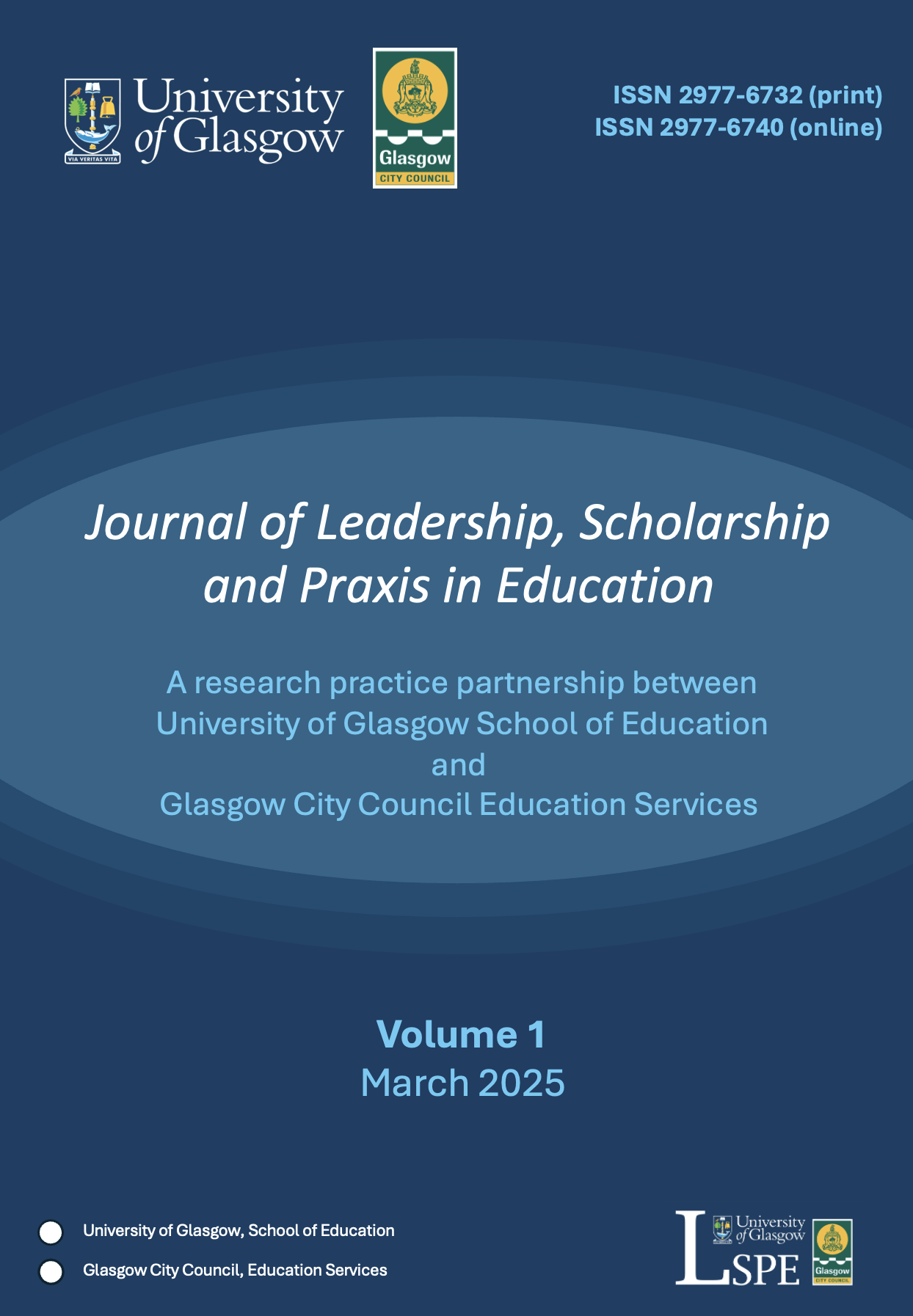Professional Reviews (PRDs) in Early Year Settings in Scotland: A Critical Exploration of the PRD Process and Potential
DOI:
https://doi.org/10.36399/7r1d2x93Keywords:
early years practitioners (EYP), Early Learning and Childcare (ELC), professional review and development (PRD), professional learningAbstract
This research study principally aims to investigate the process and potential of professional reviews (PRDs)[1] in early years settings. This topic was an area of interest to me as a researcher, because I have been working for over 20 years in childhood practice and only received two PRDs in that time. Early years is evolving, and policy and guidance is everchanging. Siraj and Kingston (2015, p. 15) highlight it is therefore essential that practitioners maintain commitment to professional learning to effectively deliver the provision the service expects, leading to improved outcomes for children.
Staff within an early years setting were key research participants. The investigation was positioned in the interpretivist paradigm, as it explored early years practitioners’ (EYP) experiences and perceptions. This study will interrogate whether staff require a PRD for professional learning to happen, thus exploring PRDs’ purpose. The study will also compare continuous professional development requirements, within the Glasgow context specifically, in early years, and that of the teaching profession (primary and secondary sectors).
The data collected indicated that the potential of PRDs was dependent on how the process was carried out. Themes emerged highlighting that leadership was perceived to be a main factor to the success or failure of the PRD process, and how staff professional development could ultimately impact on provision and outcomes. The implications of this research could ignite change and highlight the absence of current literature in this field of study.
[1] Professional Review and Development (PRD) is an ongoing learning process supported by an annual meeting between reviewer and reviewee. For pragmatism, this paper also refers to the annual meeting as a PRD.





